How Long Does THCA Stay in Your System? This is a question that is very important to many individuals when they are considering using THCA products, such as THCA Flower, THCA Pre Roll, THCA Diamonds, or THCA Disposable Vape Pen. It’s essential to understand how long THCA or any other cannabinoid stays in your system to make informed decisions about substance use. This question holds a lot of weight for those who may have to take a drug test for work or maybe even a government test, but we are here to help you figure it out.
Table of Contents:
- An Overview of THCA and Cannabis Detection
- What is the Difference Between THC and THCA?
- Will THCA Show Up On A Drug Test?
- How Long Does THCA Stay In Your System?
- How Long Does THCA Stay in Saliva?
- How Long Does THCA Stay in Your Blood?
- How Long Does THCA Stay in the Urine?
- How Long Does THCA Stay in Your Hair?
- What is the Fastest Way to Detox THC Metabolites?
- How to Flush Out THCA Metabolites
- How Long Will It Take To Detect THC Metabolite?
- Drug Test Types And Their THCA Sensitivity
- Where Should You Buy THCA?
- Final Thoughts
An Overview of THCA and Cannabis Detection
Urine drug tests may show THCA for one to two days following use; regular users may have a longer detection window. How long THCA is detectable can depend on a number of factors, such as dosage, mode of consumption, metabolism, and body composition. Rather than focusing on THCA specifically, standard drug tests primarily look for THC and its metabolites; THCA false-positive results are rare. It is important to remember that heating THCA—either by cooking, vaping, or smoking—converts it into THC and can cause a positive drug test.
-
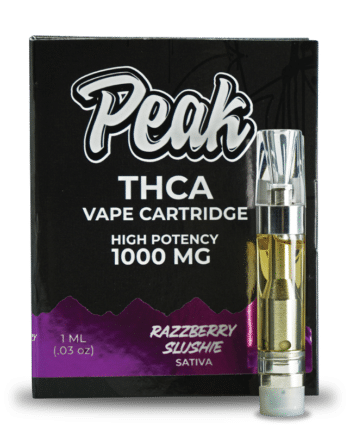 THCA Vape Cartridge$19.99
THCA Vape Cartridge$19.99 -
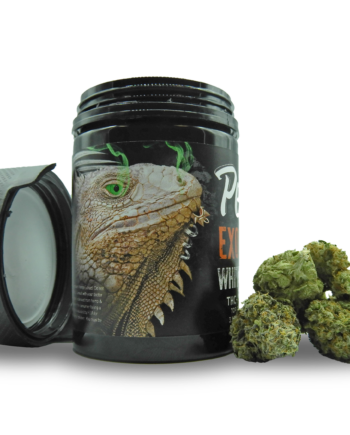 Peak Exotic THCA Flower$49.99
Peak Exotic THCA Flower$49.99 -
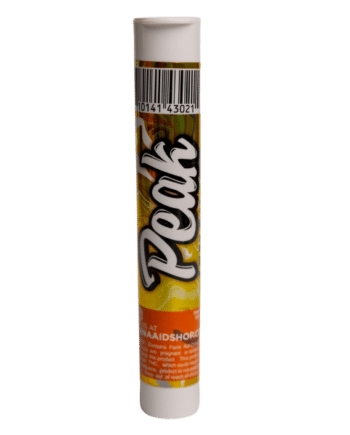 Peak High Potency THCA Prerolls$12.99
Peak High Potency THCA Prerolls$12.99 -
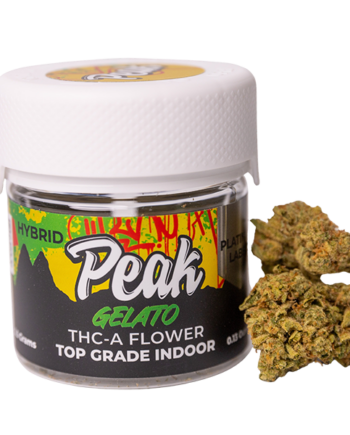 Peak Platinum THCA Flower 3.5g$60.00
Peak Platinum THCA Flower 3.5g$60.00 -
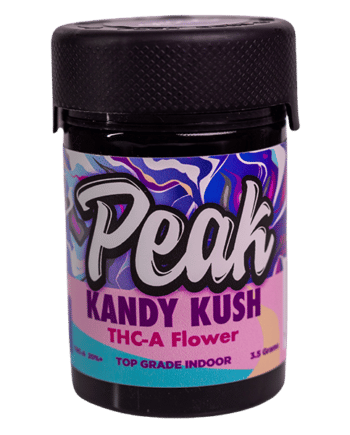 Peak High Potency THCA Flower$49.99
Peak High Potency THCA Flower$49.99 -
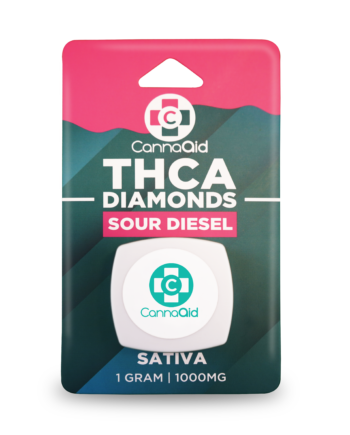 THCA Diamonds$39.99
THCA Diamonds$39.99
What is the Difference Between THC and THCA?
There are two main approaches to THCA consumption to take into account, each with special qualities of its own:
1. Consuming Raw THCA Products
People often ask how long THCA (tetrahydrocannabinolic acid) stays in their system, and the answer depends on various individual factors and consumption methods.
- In this method, THCA is consumed in its natural, unaltered form without being exposed to heat or decarboxylation.
- Raw THCA is non-psychoactive, so it cannot make you feel intoxicated.
- Fresh cannabis flowers contain it, and it is also a component of tinctures and THCA gummies, which are made from raw hemp buds.
- Since THCA remains in its original state without being converted into THC, it does not lead to the typical “high” associated with cannabis use.
2. Heat Treating THCA to Convert It into THC
- The alternative option involves applying heat to THCA-containing cannabis products, typically at temperatures between 200° and 250°F (93-121°C).
- The main psychoactive component of cannabis, THC, is created when THCA undergoes a chemical process called decarboxylation, which results in the loss of a carboxyl group.
- In this process, THC is produced, which is known for its potential effects.
- Cannabis consumption methods that involve heat, such as smoking, vaping, or cooking, lead to the conversion of THCA into THC, making it capable of inducing a “high.”
These two consumption methods create distinct experiences with cannabis, with raw THCA being non-psychoactive and heat-activated THCA becoming THC, which has psychoactive properties. The selection of these techniques can have a substantial impact on the absorption and metabolism of cannabinoids within the body.
It is noteworthy that standard drug tests do not specifically target THCA; instead, they primarily target THC and its metabolites. However, the method of consumption plays a crucial role. If THCA is heated through smoking, vaping, or cooking, it transforms into THC, which can potentially lead to a positive drug test result due to the presence of THC metabolites. On the other hand, consuming THCA in its raw form is less likely to result in a positive drug test, as it remains non-psychoactive and is not typically tested for in standard drug screenings.
Will THCA Show Up On A Drug Test?
THCA may or may not appear on a drug test, depending on the kind being used. Typically, raw cannabis consumption in the form of THCA is not a substance that is tested for in drug screenings because it is neither illegal nor psychoactive.
Nevertheless, it is important to understand that heat causes THCA to change into THC, the psychoactive substance. The body converts THC into THC metabolites (THC-COOH), so it does not matter if the THCA came from a legitimate hemp source after this conversion. A THC-specific drug test may come back positive as a result of this procedure.
In rare instances, some drug tests may potentially produce false positive results. This can happen because cannabinoid metabolites may have similar structures and can cross-react with the test, leading to inaccurate outcomes.
How Long Does THCA Stay In Your System?
Any cannabinoid, including THCA, will remain in your system for a certain amount of time, depending on your metabolism, how often you use it, how much you take it, and how you take it. The precise amount of time it takes for THCA to leave your body is a question that cannot be answered.
This uncertainty arises because THCA lacks psychoactive properties, is not illegal, and has received less research attention compared to cannabinoids like THC and CBD. As a result, research on the precise removal of THCA from the body has been scarce.
It is vital to remember that the most popular method of screening for substance abuse, urine drug tests, usually does not screen for THCA directly. As a result, it is unlikely that people who have consumed raw cannabis products high in THCA will test positive in these tests. The primary goal of these tests is to identify cannabis use markers such as THC and its metabolites, like THC-COOH.
When people smoke concentrates, vape pens, or prerolls containing THC, however, a different situation arises. Tests for blood, urine, and saliva can identify THC metabolites, which are produced when heating THCA and converting it into THC. This implies that THCA might show up in drug tests meant to identify THC and its related metabolites if it is heated to the point of becoming THC.
-
 THCA Vape Cartridge$19.99
THCA Vape Cartridge$19.99 -
 Peak Exotic THCA Flower$49.99
Peak Exotic THCA Flower$49.99 -
 Peak High Potency THCA Prerolls$12.99
Peak High Potency THCA Prerolls$12.99 -
 Peak Platinum THCA Flower 3.5g$60.00
Peak Platinum THCA Flower 3.5g$60.00 -
 Peak High Potency THCA Flower$49.99
Peak High Potency THCA Flower$49.99 -
 THCA Diamonds$39.99
THCA Diamonds$39.99
How Long Does THCA Stay in Saliva?
THCA is likely to stay in your saliva for a shorter duration compared to THC. The presence of THC in saliva can be detected for 1-3 days, while that of THCA is less potent and should not be detected for as long. The likelihood of failing a drug test is higher if you smoke THCA pre rolls, vapes, or flowers. This is because heating THCA converts it into THC, and the metabolites of THC can be detected in saliva.
Because saliva tests are simple to administer and non-invasive, they are becoming more and more popular. When there is a suspicion of recent drug use, these tests are usually used. Saliva tests can identify THCA several hours to several days after use, and their sensitivity is comparable to that of blood tests.
How Long Does THCA Stay in Your Blood?
THCA is likely to have a shorter presence in the bloodstream compared to THC. In comparison to urine or saliva tests, blood tests are less frequent and less intrusive. These tests are primarily used to identify recent drug use and have shorter detection windows. THCA is expected to have a shorter blood lifespan than THC, lasting from a few hours to a few days in the blood.
How Long Does THCA Stay in the Urine?
THCA is typically not screened during standard urine drug tests commonly used for substance abuse detection. You are less likely to trigger positive results in these tests if you have consumed raw cannabis products.
While there is limited research on the duration of THCA in body fluids, it is often compared to THC. THC can remain in urine for three to seven days, but in heavy cannabis users, this time period can last up to 45 days. It’s important to note that cannabinoids are lipophilic, meaning they bind to fat cells and can be stored in the body. Individuals with higher body fat content may retain cannabinoids for a longer duration compared to those with lower body fat.
How Long Does THCA Stay in Your Hair?
Hair tests for drug detection have significantly longer detection windows, typically 3 to 12 months. These tests are primarily used to identify long-term drug use due to the extended period required for results to show. However, some newer tests can detect THC metabolites for a shorter period, specifically 5-7 days after cannabis use.
It’s essential to note that recent research suggests that the presence of cannabis metabolites in hair may not be conclusive proof of drug use. THC, THC-COOH, and THCA can be transferred to non-cannabis users through smoke, sebum, and sweat. In other words, simply being in proximity to cannabis users could potentially lead to failing a drug test for cannabis, even if you haven’t used the substance yourself.
What is the Fastest Way to Detox THC Metabolites?
Detoxifying your body from THC metabolites can take time, as it depends on individual factors. There is no guaranteed way to speed up the process, but staying hydrated, exercising regularly, and eating a healthy diet can support your body’s natural detoxification. Be cautious of products that claim to offer a rapid detox, as their effectiveness may be questionable.
How to Flush Out THCA Metabolites
Consider the following measures to minimize the risk of THCA affecting drug test results:
- Cannabis products containing high levels of THCA should be avoided.
- THCA products that have been heated should be avoided.
If you have already consumed such products and want to flush out THCA metabolites from your system, the following methods have been known to help but are not guaranteed, and you do so at your own risk:
1. Abstinence: Refusing to consume cannabis is the most dependable method of eliminating THC metabolites from your body. You must be patient, as these metabolites may take several weeks to leave your body.
2. Hydration: Whether consuming more water aids in the removal of THC metabolites is a topic of debate. Some argue that increasing water intake can increase urination, which could facilitate detoxification. Cannabis metabolites are stored in fat cells, so increasing water intake may not significantly speed up their removal. Furthermore, the majority of cannabis metabolites are eliminated through feces, with urine excreting only a tiny portion of them. Increasing your water intake might help hasten the elimination process, even though it might not offer an immediate remedy.
3. Organic Food Diet: Eating a balanced diet rich in organic foods may improve the body’s ability to store cannabis compounds. By inhibiting lipolysis—the breakdown of glycerol and fatty acids—this diet may lessen the amount of cannabinoid compounds stored in the body and release them into the bloodstream.
4. Exercise: Engaging in physical activity can promote the release of cannabis metabolites stored in fat cells. Although detoxification during exercise may temporarily increase the likelihood of failing a drug test, it is believed to help by encouraging lipolysis, the breakdown of fats where these metabolites are stored.
It’s important to note that while these methods may assist in the elimination of THC metabolites, there is no guaranteed and immediate way to entirely flush cannabis from your system. Abstaining from use and practicing healthy habits over time are the most effective approaches to ensuring clear drug test results.
How Long Will It Take To Detect THC Metabolite?
People often inquire about how long weed is detected in their system, which depends on the specific drug test used. THC metabolites can be detected in drug screenings for varying durations, depending on the sensitivity of the test and an individual’s usage pattern:
- – Some drug screenings can detect THC metabolites for 1 to 2 weeks.
- – More sensitive tests have the capability to identify trace THC metabolites for as long as two months.
The length of time that THC metabolites are detected in the body depends on a number of variables, including metabolism, frequency of use, degree of hydration, and type of test used. These are the approximate detection windows according to frequency of usage:
- – One-time use: 3 to 5 days
- – Moderate user (four times per week): 5 to 7 days
- – Chronic user (daily): 10 to 15 days
- – Chronic heavy user (multiple times per day): more than 30 days
It is crucial to remember that using smokable products containing THCA derived from hemp in an attempt to pass a drug test might not be a successful tactic. Due to the fact that THCA is not psychoactive, it may not have the same immediate effect as THC. On the other hand, heat causes THCA to change into THC, which can result in positive drug tests.
Finally, it is critical to balance personal and professional obligations and make wise choices about substance use, particularly with regard to employment-related circumstances or potential legal repercussions from drug testing.
Drug Test Types And Their THCA Sensitivity
Different drug tests have varying sensitivities and target different substances. Standard urine tests typically focus on detecting THC metabolites and are not sensitive to THCA. Saliva tests are also primarily concerned with THC and its immediate metabolites. Blood tests are used for a wide range of substances, but THCA is not typically included in these tests. Hair follicle tests, while highly sensitive to THC metabolites, do not specifically target THCA.
Where Should You Buy THCA?
As it relates to purchasing THCA products, you have several options. THCA products are available at nearby physical stores, or you can take advantage of the convenience offered by internet merchants. However, CannaAid is a great place to shop online if you are looking for a wide range of high-quality THCA options.
CannaAid takes pride in offering a wide range of THCa products to give our customers the best options on the market. Whether you’re interested in trying THCA Flower, exploring the brilliance of THCA Diamonds, or seeking the convenience of THCA Disposable Vape Pens, our collection has something to cater to your specific preferences. We prioritize quality and variety, ensuring that you can confidently select your favorite THCA product from our carefully curated selection. Thus, look no further than CannaAid if you are looking for premium THCA options and a hassle-free shopping experience. Find the right THCA product for your needs by browsing through our selection.
-
 THCA Vape Cartridge$19.99
THCA Vape Cartridge$19.99 -
 Peak Exotic THCA Flower$49.99
Peak Exotic THCA Flower$49.99 -
 Peak High Potency THCA Prerolls$12.99
Peak High Potency THCA Prerolls$12.99 -
 Peak Platinum THCA Flower 3.5g$60.00
Peak Platinum THCA Flower 3.5g$60.00 -
 Peak High Potency THCA Flower$49.99
Peak High Potency THCA Flower$49.99 -
 THCA Diamonds$39.99
THCA Diamonds$39.99
Final Thoughts
As a result, unprocessed cannabis plants contain the non-psychoactive compound THCA. Given that most drug tests look for THC and its metabolites, it is unlikely to come up on standard drug tests. The duration that THCA stays in one’s system is relatively short, as it is rapidly metabolized and does not convert into THC in the body. It is critical to comprehend the particular tests being used and their THCA sensitivity if drug testing worries you. Always be informed about the products you consume and their potential effects on drug tests.

